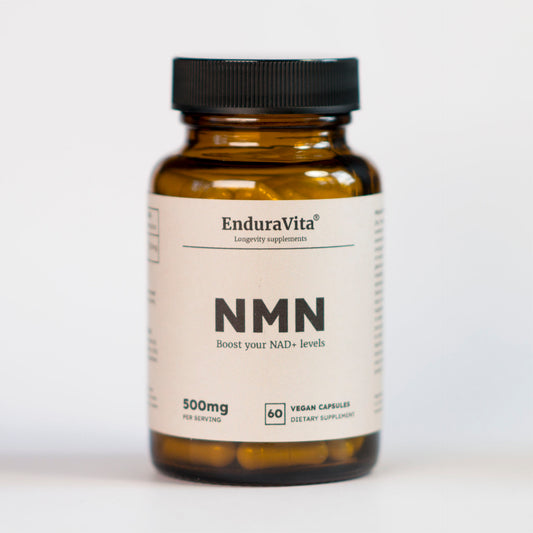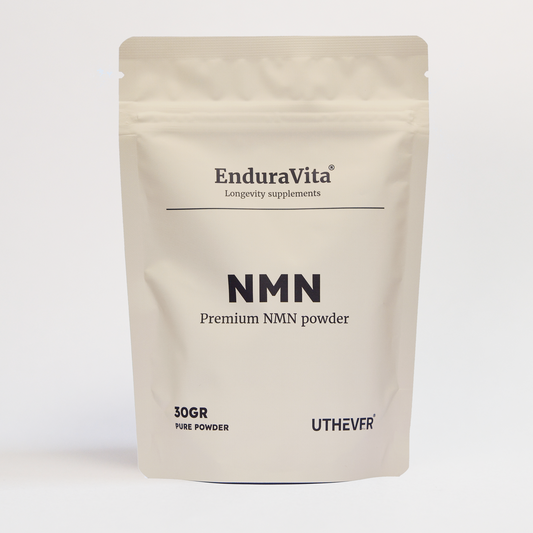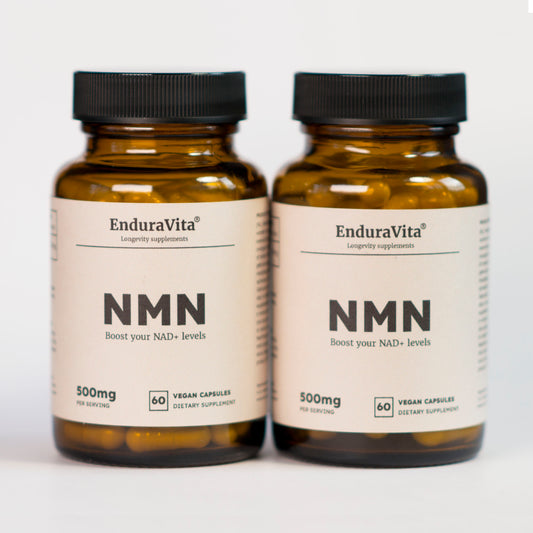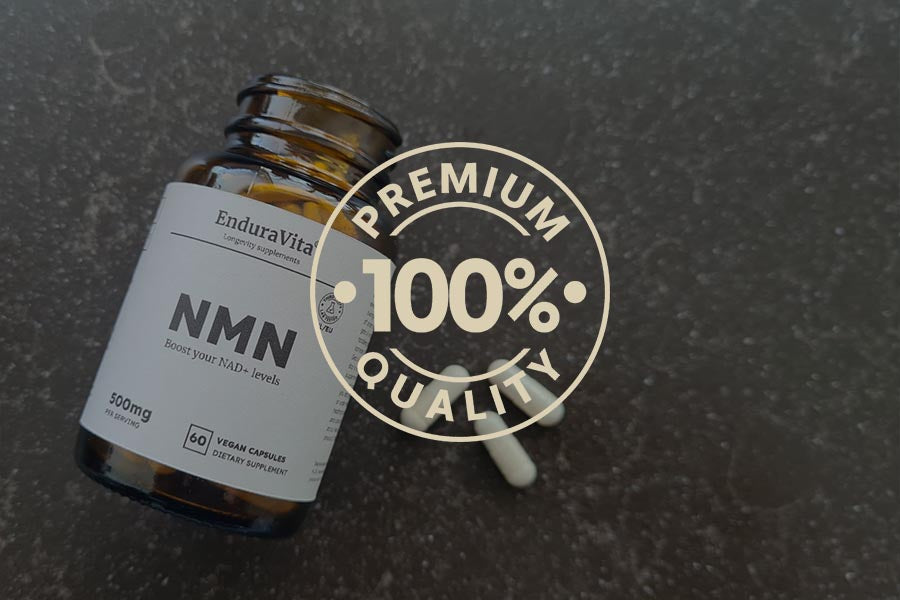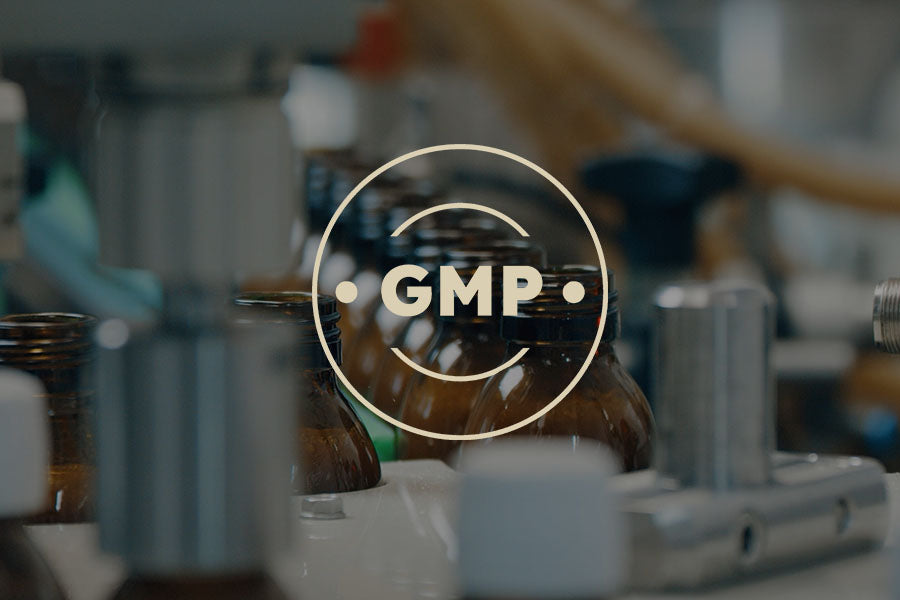
Study: Biological age remains constant during NMN supplementation on day 60 & NAD+ levels rise.
This study, conducted in December 2022, investigated the efficacy and safety of β-nicotinamide mononucleotide (NMN) supplementation in healthy middle-aged adults.
Summary of Results:
On days 30 and 60, blood NAD concentrations saw a statistically significant increase in all NMN-treated groups compared to both placebo and baseline. The groups receiving 300 mg, 600 mg, and 900 mg NMN showed a statistically significant improvement in walking distance during the six-minute walk test on these days compared to the placebo group. By day 60, the biological age of blood significantly rose in the placebo group but remained stable in all NMN-treated groups, creating a notable difference between the treated groups and placebo. Additionally, changes in SF-36 scores on days 30 and 60 reflected significantly better health outcomes in all NMN-treated groups compared to the placebo group.
Summary of Research:
Animal studies have shown that supplementation of β-nicotinamide mononucleotide (NMN) increases nicotinamide adenine dinucleotide (NAD) concentrations and improves health span and lifespan with a high degree of safety. However, it is still unclear whether these effects can be translated to humans. Therefore, a randomized, multicenter, double-blind, placebo-controlled, parallel-group, dose-dependent clinical study was conducted with 80 healthy middle-aged adults. These participants were randomly allocated to four groups for a 60-day clinical trial, receiving daily oral administration of placebo, 300 mg, 600 mg, or 900 mg NMN. The primary objective of the study was to evaluate blood NAD concentration with dose-dependent regimens. Secondary objectives included assessing the safety and tolerability of NMN supplementation, as well as evaluating clinical efficacy by measuring physical performance (six-minute walk test), biological age of the blood (Aging.Ai 3.0 calculator), Homeostatic Model Assessment for Insulin Resistance (HOMA-IR), and subjective overall health evaluation [36-Item Short Form Survey Instrument (SF-36)]. Statistical analysis was performed using the Per Protocol analysis, with a significance level of p = 0.05. All 80 participants completed the trial without any protocol violations. In all NMN-treated groups, statistically significant increases in blood NAD concentrations were observed on day 30 and day 60 compared to both the placebo group and baseline (all p ≤ 0.001). The highest blood NAD concentrations were measured in the groups receiving 600 mg and 900 mg NMN. No safety issues were found based on monitoring of adverse events (AEs), laboratory and clinical measurements, and NMN supplementation was well tolerated. The increase in walking distance during the six-minute walk test was statistically significantly higher in the groups receiving 300 mg, 600 mg, and 900 mg NMN compared to the placebo group on both day 30 and day 60 (all p < 0.01), with the longest walking distances measured in the groups receiving 600 mg and 900 mg NMN. The biological age of the blood significantly increased in the placebo group and remained unchanged in all NMN-treated groups on day 60, resulting in a significant difference between the treated groups and placebo (all p < 0.05). HOMA-IR showed no statistically significant differences for all NMN-treated groups compared to placebo on day 60. The change in SF-36 scores on day 30 and day 60 indicated statistically significantly better health in all three treated groups compared to the placebo group (p < 0.05), except for the change in SF-36 score in the 300 mg group on day 30. NMN supplementation increases blood NAD concentrations and is safe and well tolerated with daily oral administration up to 900 mg NMN. Clinical efficacy, expressed by blood NAD concentration and physical performance, is highest with daily oral intake of 600 mg. This study was registered with ClinicalTrials.gov, NCT04823260, and Clinical Trial Registry - India, CTRI/2021/03/032421.
Source: https://link.springer.com/article/10.1007/s11357-022-00705-1

